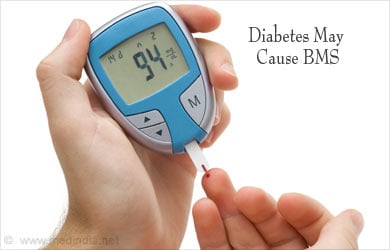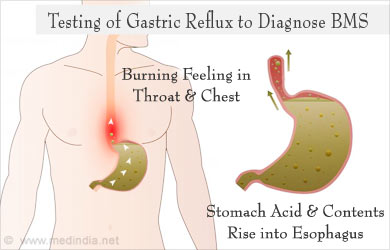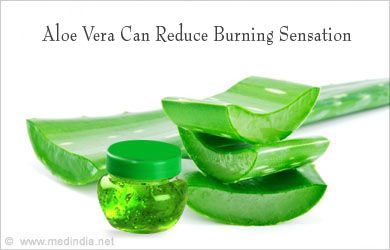- Burning Mouth Syndrome - (http://www.nidcr.nih.gov/oralhealth/topics/burning/burningmouthsyndrome.htm)
- About Burning mouth syndrome - (https://www.dentalhealth.org/tell-me-about/topic/sundry/burning-mouth-syndrome)
- Burning Mouth - (https://my.clevelandclinic.org/health/diseases_conditions/hic_burning_mouth)
- Jimson S, Rajesh E, Jayasri Krupaa R, Kasthuri M. Burning mouth syndrome. J Pharm Bioallied Sci. 2015;7(S1):S194-S196.
- Scala A, Checchi L, Montevecchi M, Marini I, Giamberardino MA. Update on burning mouth syndrome: overview and patient management. Crit Rev Oral Biol Med. 2003;14(4):275-291.
- Miziara I, Chagury A, Vargas C, Freitas L, Mahmoud A. Therapeutic Options in Idiopathic Burning Mouth Syndrome: Literature Review. International Archives of Otorhinolaryngology. 2015;19(1):86-89. doi:10.1055/s-0034-1378138.
- Information About Burning mouth syndrome - (http://www.mayoclinic.org/diseases-conditions/burning-mouth-syndrome/basics/causes/con-20029596)
- Coculescu E, Radu A, Coculescu B. Burning mouth syndrome: a review on diagnosis and treatment. Journal of Medicine and Life. 2014;7(4):512-515.
What is Burning Mouth Syndrome?
Burning mouth syndrome is a condition where an individual feels a burning pain or a warm or stinging sensation in the mouth or oral mucosa. The symptoms may persist every day for some months or longer.
However, there are no physiological changes on examination. Despite the burning sensation, the mouth does not feel hot to touch. The exact cause for this condition is unknown. The condition may arise due to multiple factors. The prevalence of the condition ranges from 0.7% to 4.6% in the population. The condition is observed in adults between the ages of 38 to 78 years, especially women in their middle age or in elderly women (post-menopausal). The ratio of incidence of BMS in females compared with males, is 7:1. The condition affects lips, the sides and tip of the tongue as well as hard and soft palates of the mouth. Burning mouth syndrome can be classified into primary and secondary BMS.

Classification of BMS
Andrea Scala and her colleagues classified BMS into primary and secondary BMS in their article in 2003. Primary BMS is characterized by the inability to identify the causes (either systemic or local) of BMS. However, there is an involvement of central or peripheral neuropathological pathways. In secondary BMS, systemic or local causes are identified. Other authors have suggested an alternate classification of BMS into 3 types. Type I BMS is connected with conditions, such as diabetes and other nutritional deficiencies. Type 2 BMS is associated with psychological conditions while type 3 BMS is connected with allergies. The need to classify patients into different types of BMS is mainly to decide what kind of treatment to prescribe. It has been observed that it is very difficult to find appropriate treatment for type 2 BMS patients.
What Causes Burning Mouth Syndrome?
The exact cause of BMS is not clear.
Some of the causes include the following:
- Psychological issues: anxiety and depression
- Local factors: Nerve trauma, salivary gland irregularities, treatment of dental issues, and allergies
- Systemic factors: Diabetes, menopause, and nutritional defects

What are the Symptoms and Signs of Burning Mouth Syndrome?
Individuals with BMS invariably present 3 main symptoms also known as the triad. They are dry mouth (xerostomia), pain in the oral region, and change in taste perception.
The main symptom of BMS is pain. The degree of the pain differs in different individuals. Individuals suffer pain in the shoulder, headache, nausea, trouble with speech, and gagging.
How do you Diagnose Burning Mouth Syndrome?
Since there are no specific diagnostic tests for BMS, the basis for diagnosing BMS is to rule out other potential conditions that may give rise to similar symptoms. There are different methods to diagnose BMS. The diagnosis of BMS is carried out in the following manner:
- A complete physical and clinical examination of the individual is performed. In a physical examination, soreness in different parts of the mouth, a cracked tongue, or a coated/white tongue, are identified as potential causes of BMS. Sometimes, nothing is identified in a clinical examination. Thrush (oral candidiasis) and tongue cancer, if identified, will exclude BMS as a condition. In the event of no physical symptoms, the burning sensation is attributed to other conditions, such as anemia or diabetes.
- The flow rate of saliva and the function of taste are measured.
- Infections are detected by testing cultures of oral mucosa. Candida albicans infection is tested, antibodies against Helicobacter pylori are administered, Sjögren’s syndrome is also tested to eliminate misdiagnosis.
- History of pain is considered. Assessment of pain is performed with the visual analog score, also known as VAS, where 10 indicates unbearable pain and 0 indicates no pain.
- The psychological history of the patient is considered in relation to the condition.
- Allergies in individuals are tested with the patch test. Allergy tests for food allergens, such as benzoic acid, nicotinic acid, ascorbic acid, cinnamon, and propylene glycol, reveal a diagnosis of BMS. Similarly, allergy to dental materials, such as gold, zinc, cobalt, mercury, and palladium can reveal a diagnosis of BMS.
- Hormonal, nutritional, and autoimmune conditions are tested with hematological tests to rule out their role in generating BMS-like symptoms
- Neurological imaging is performed to eliminate misdiagnosis with degenerative conditions.
- Gastric reflux is tested in individuals.

What is the Treatment of Burning Mouth Syndrome?
In order to decide on the mode of treatment, it is important to classify BMS. Primary BMS does not have a known cause and hence the choice of treatment is based on the symptoms observed. The treatment of primary BMS is based on identifying and improving the symptoms, treating any physiological changes, and dealing with the psychological disorders of the individual. A recent literature review by a research group in Brazil provided comprehensive data on the different treatment options of primary BMS. Some of the treatment options for primary BMS are discussed below:
- Aloe vera application: It has been observed that topical application of Aloe vera on the tongue can reduce the symptoms of burning.

- Capsaicin: This chemical is found in peppermint and is used to reduce the burning sensation and pain in patients with BMS.
- Catuama: In Brazil, an herbal product manufactured from 4 different plants, has been used for nearly 20 years to combat mental and physical exhaustion. Catuama has been observed to have antidepressant, antinociceptive (medication to treat pain due to body tissue damage), and blood vessel relaxation properties. This herbal product has been shown to be effective in reducing the symptoms of BMS.
- Acupuncture: This is a traditional Chinese technique used to alleviate symptoms of various disease conditions. Many studies have shown acupuncture is effective in reducing pain in BMS patients. However, these studies have not been conducted with sufficient scientific vigor.

- Psychotherapy: Cognitive or psychotherapy has been observed to have an alleviating effect on the symptoms of BMS. Research studies have observed that combination of drugs with psychotherapy can significantly improve BMS symptoms.
- Paroxetine: This drug has been shown to be effective in alleviating pain in BMS patients. However, scientific data have not been effectively compared with control placebo data.
- Clonazepam: This drug has been studied extensively and has been found to be effective in alleviating pain, altered taste perception, and sleepiness.
- Hypericum perforatum: Hypericin is an herbal medicine that is prescribed for pain, depression, and anxiety. However, statistically significant therapeutic effects have not been observed with this medication for BMS.
- a-lipoic acid (ALA): There is insufficient evidence to validate the effectiveness of alpha-lipoic acid on symptoms of BMS. There are data that have shown ALA is effective in improving the symptoms of BMS. It has been observed that ALA is useful in nerve repair. However, there are data that have not observed any significant difference in BMS symptoms when ALA is administered.
Other forms of treatment include: hormone replacement therapy, anticonvulsants, vitamin supplementation, antidepressants, and zinc or iron therapy.
Treatment of secondary BMS: Secondary BMS arises due to different causes. The treatment options are directed towards these causes. For example, in the case of BMS due to allergies, targeting the allergy is an appropriate form of treatment.
Laboratory tests are also useful in determining the type of individualized treatment required for BMS patients.
There is currently no effective treatment against BMS. Patients are counseled about the disease and given an idea about the types of treatment available. Invariably the symptoms of BMS are related to stress and patients are advised about ways to deal with stress.
Prevention of Burning Mouth Syndrome
Burning mouth syndrome is caused by various factors. The exact cause is unknown. Hence, preventing the condition is difficult. However, there are certain ways to ease the symptoms of BMS. It is recommended that patients chew sugar-free gum, drink a cold drink or suck ice. Certain irritants, such as spicy food, tobacco, alcoholic mouthwashes, alcohol, and acidic products, should be avoided.





